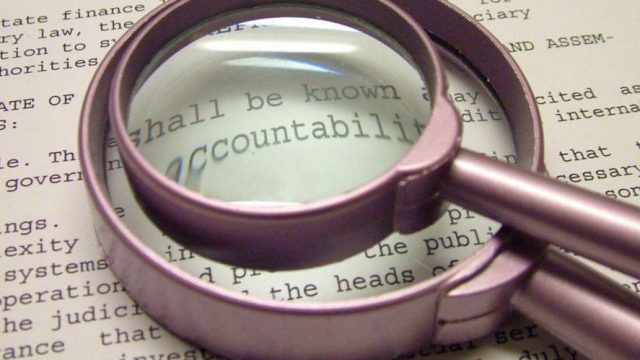Legislative Resolution Calls For Study Of Local Budget Transparency

On Friday – before the resolution was even posted online for the public to view – SCR4001 got a hearing and a unanimous “do pass” recommendation from the Senate Political Subdivisions Committee.
The resolution calls for a study into “financial reports required by law to be compiled and filed by political subdivisions to determine whether they are being used to full advantage and whether they should be improved, consolidated, or eliminated.”
A key excerpt:
WHEREAS, the legislative intent in requiring financial reports is to provide transparency in local government taxation and budget matters to inform the public and serve as a basis for state policy decisions but questions exist about whether the currently required financial reports are serving the intended purposes and whether duplication of information reporting imposes an unnecessary burden on local government staff; and
WHEREAS, one of the difficulties of comparing financial reports is that there is no uniform accounting method among political subdivisions and a method of making financial information available at a central source has not been fully implemented
This is an interesting topic. On one hand, political subdivisions absolutely should have to report their finances to lawmakers (who have been taking on a big chunk of local spending in recent bienniums) and to the public. On the other hand, nobody wants to see local governments saddled with useless and/or duplicative make-work.
What’s frustrating is that local government groups – who are consistently hostile to transparency efforts – have fought legislation to address this situation in the past.
During the 2009 legislative session Rep. Blair Thoreson, a Republican from Fargo, passed legislation creating a searchable database of state spending (you can see it here). That was a big success, and to follow up on it Rep. Thoreson introduced legislation in 2011 and 2013 to add local spending to the database.
It was a good idea. Property taxes have been one of the most debated issues in the state for the better part of a decade, and issues with local taxes start with local spending. Whatever your position on local spending/tax issues it helps for the public to have a tool available to inform themselves (not to mention that it takes pressure for information requests off of local officials who can direct people to an online database).
Unfortunately, Thoreson’s bill was defeated in 2011 and 2013 (last session lawmakers did include money in the OMB budget to collect some data on local spending which you can see here). Leading the charge against the bill was groups like the North Dakota Association of Counties and the League of Cities which argued that reporting this information was too costly.
But the solution to that gripe, whatever merit it may have, is in consolidation. The state should eliminate the various reports currently required of local government, but then streamline the flow of that data into one central state database accessible not only to lawmakers but to the general public as well.
Three birds, one stone. Lawmakers get their reports. Local governments get a simpler reporting process. The public (not to mention, ahem, bloggers and journalists) get more data available in what one would hope would be a intuitive and easy-to-use format.
Let’s hope a shift towards consolidation and transparency is the outcome of SCR4001, and not a move to what local government groups seem to want which is less transparency.




